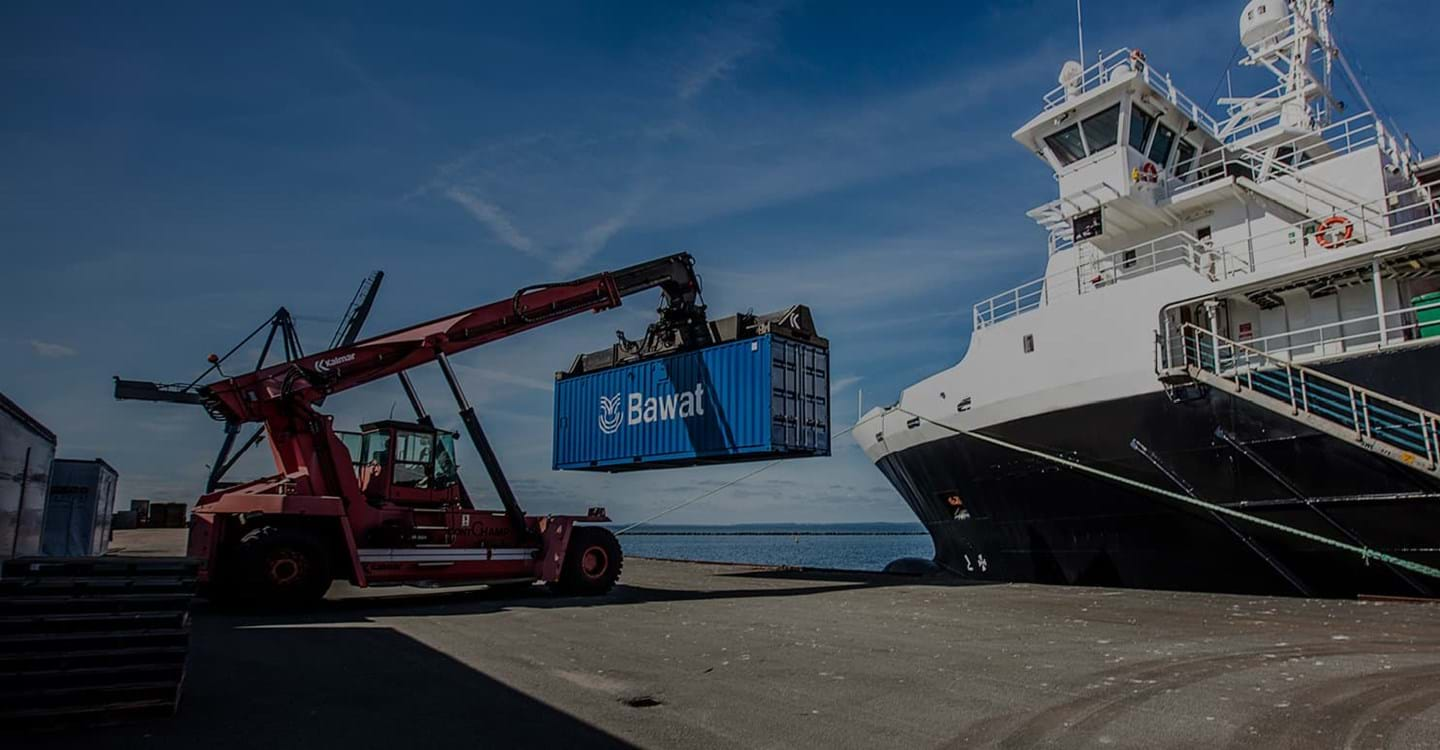
MOBILE BWMS BY BAWAT BUILT BY DAMEN
Bawat sets a new standard in mobile ballast water management (BWMS) by offering treatment services from a mobile container either from the dockside, through barges, or temporarily lifted and installed on your vessel. The mobile unit is manufactured and built by the esteemed Damen Shipyards.
PORT AND YARD SOLUTION
The Bawat mobile ballast water management system (BWMS) allows treatment in ports, terminals, and shipyards if the vessel’s BWMS malfunctions or no onboard BWMS is installed.
The unit provides ports, terminals, and yards with an ability to offer the vessels a unique contingency or scheduled service, so the vessels are not operationally delayed when the ballast water must be treated.
VESSEL AND OFFSHORE SOLUTION
The Bawat mobile BWMS enables vessels and offshore platforms to avoid expensive fixed installations. Bawat provides owners with a flexible solution of servicing several vessels with only one Bawat unit.
Join us in embracing the future of ballast water management with Bawat built by Damen. Ensure compliance, operational efficiency, and environmental responsibility.
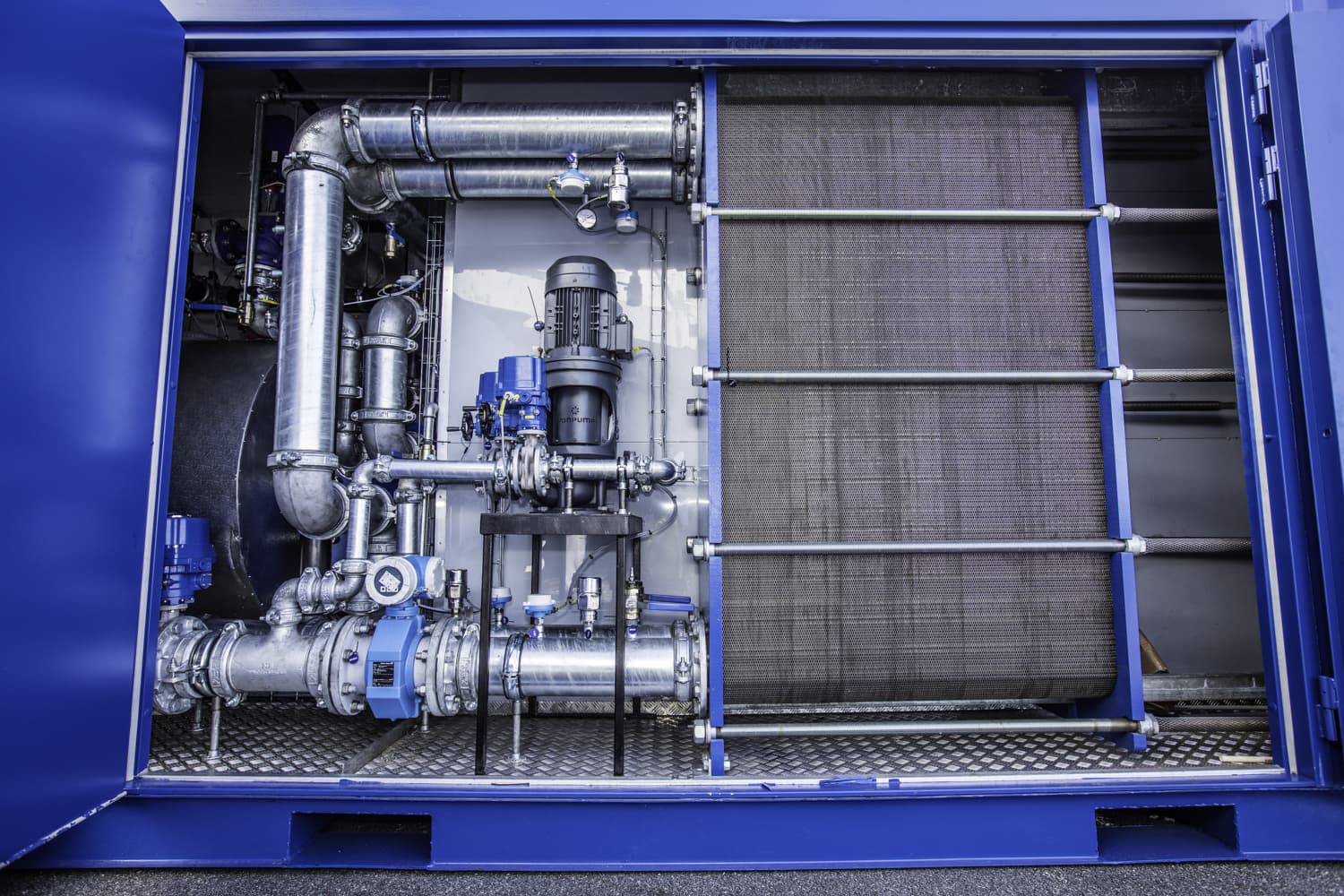
Mobile BWMS by Bawat built by Damen
When confronted with onboard BWMS malfunctions or in search of a dependable compliance solution, the Bawat Damen Mobile BWMS solution offers the solution. Setting a new standard in mobile ballast water management, the mobile BWMS makes it possible to make treatment services from a mobile container, be it dockside, via barges, or temporarily lifted onto your vessel.
THE BAWAT Mobile SYSTEM IS PERFECTLY SUITED FOR BELOW:
- Jack-up rigs
- OSV/PSV
- Port reception facility (PRF)
- Barges
- Semi-submersibles
- Drillships
- Shipyards
Read our corporate brochure
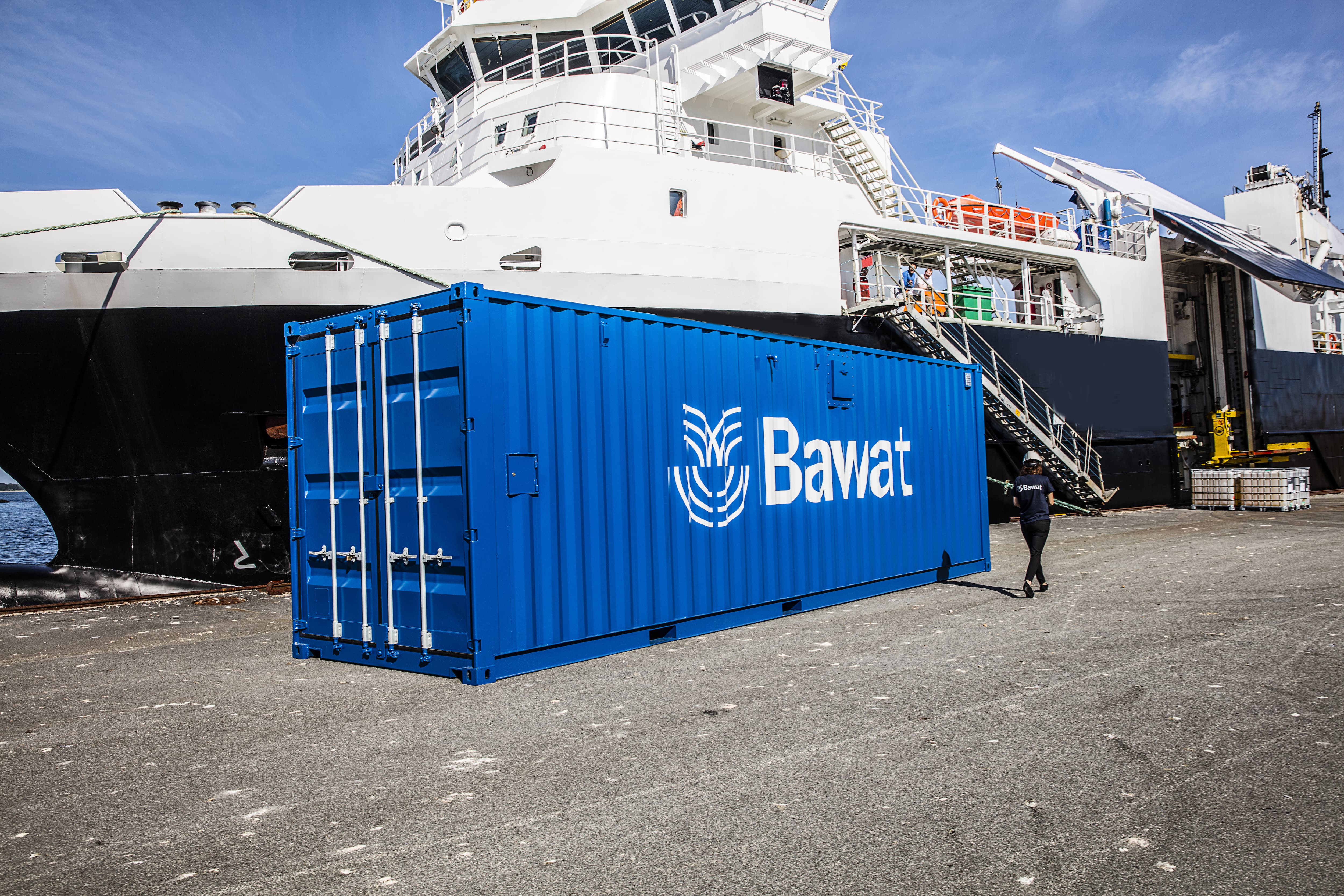
how it actually looks in real life
Watch our film here from a location in Antwerp Harbour where it services a customer and their different vessels.
Could this solution work for you or interested in hearing more? Contact info@bawat.com or our contact formular below.
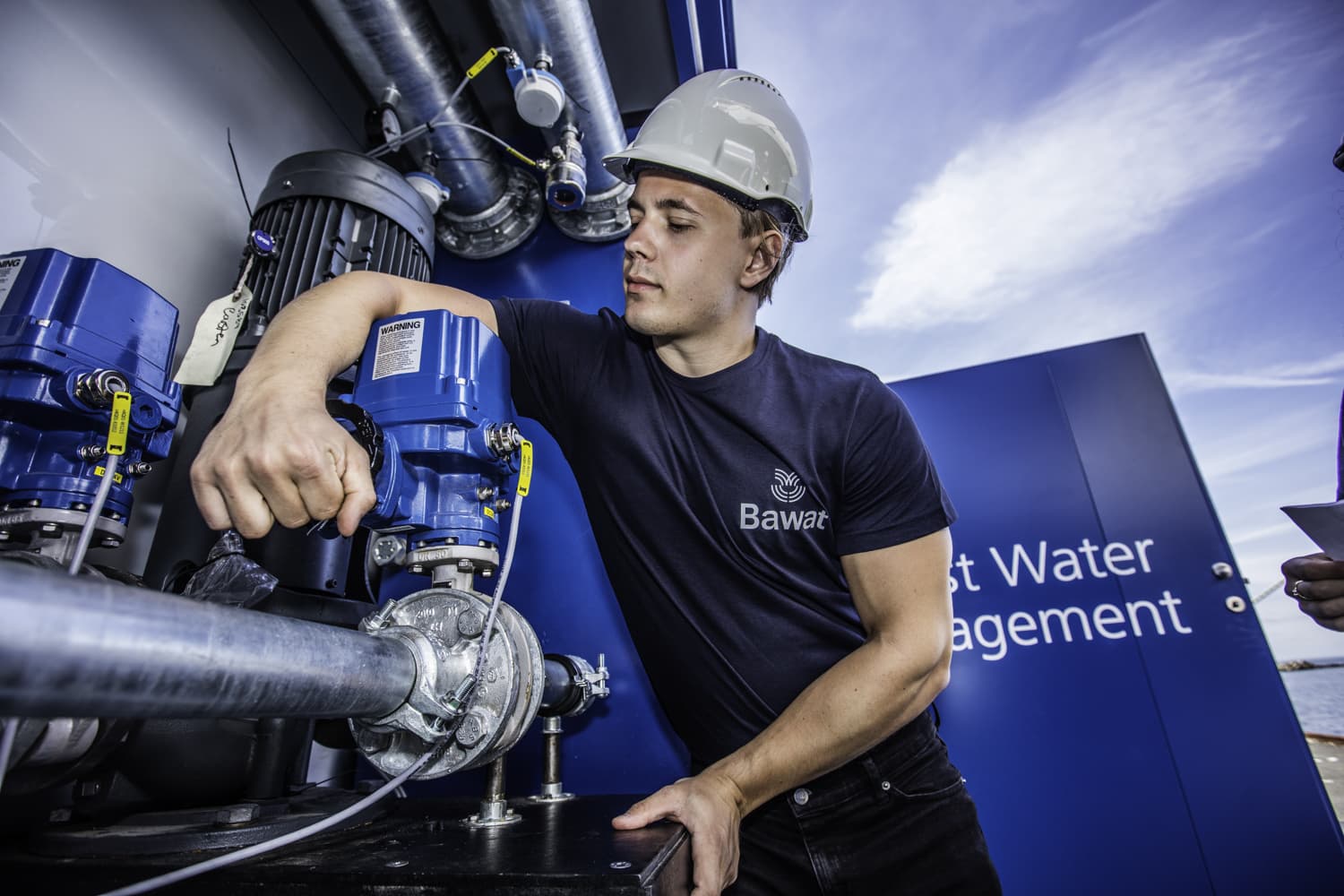
How it works
Connection to the vessel: BWMS links directly to the ship’s ballast water piping from dockside, barge-based, or temporarily lifted and installed on your ship.
The One-Pass Treatment Technology: Makes this proces the most effective and efficient compliant ballast water treatment solution saving you time and money.Water flow: The ballast water is channeled through the BWMS using pumps from the vessel or an external booster pump.
Clean discharge: Once the water has been treated by
the BWMS, it meets both IMO and USGC standards and
is safe to discharge.
Option for fresh ballast: Ships can also be fitted with pre-treated water. Water is taken form the harbor, treated by the BWMS, and then filled into the vessel’s ballast tanks.
Bawat Baas port Reception facility
Bawat BaaS – Ballast as a Service is a port reception facility (PRF) solution designed to provide contingency support for ballast water treatment in ports. This service ensures that ballast water is treated effectively if a vessel's onboard system is malfunctioning or if the ship's treated water fails to meet discharge criteria. With Bawat BaaS, ports can confidently prevent any vessel from departing with untreated ballast water, ensuring compliance and environmental safety.
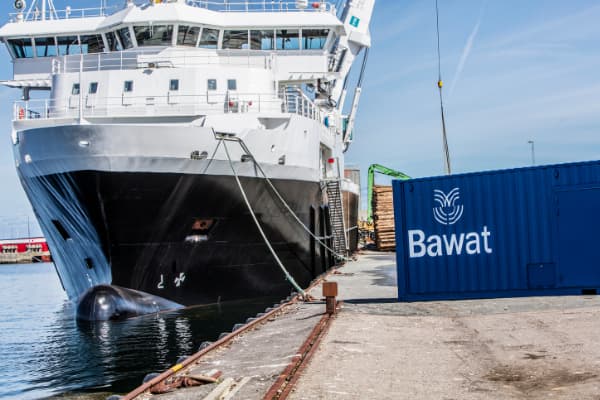
Contact Us to get a quote or for any enquiries regarding our mobile BWMS:






